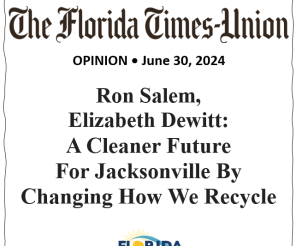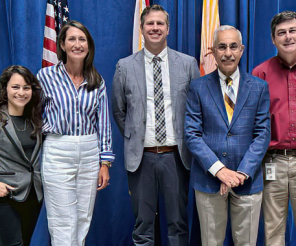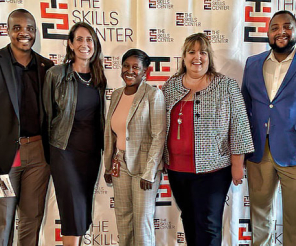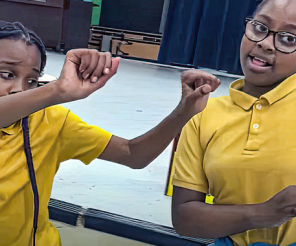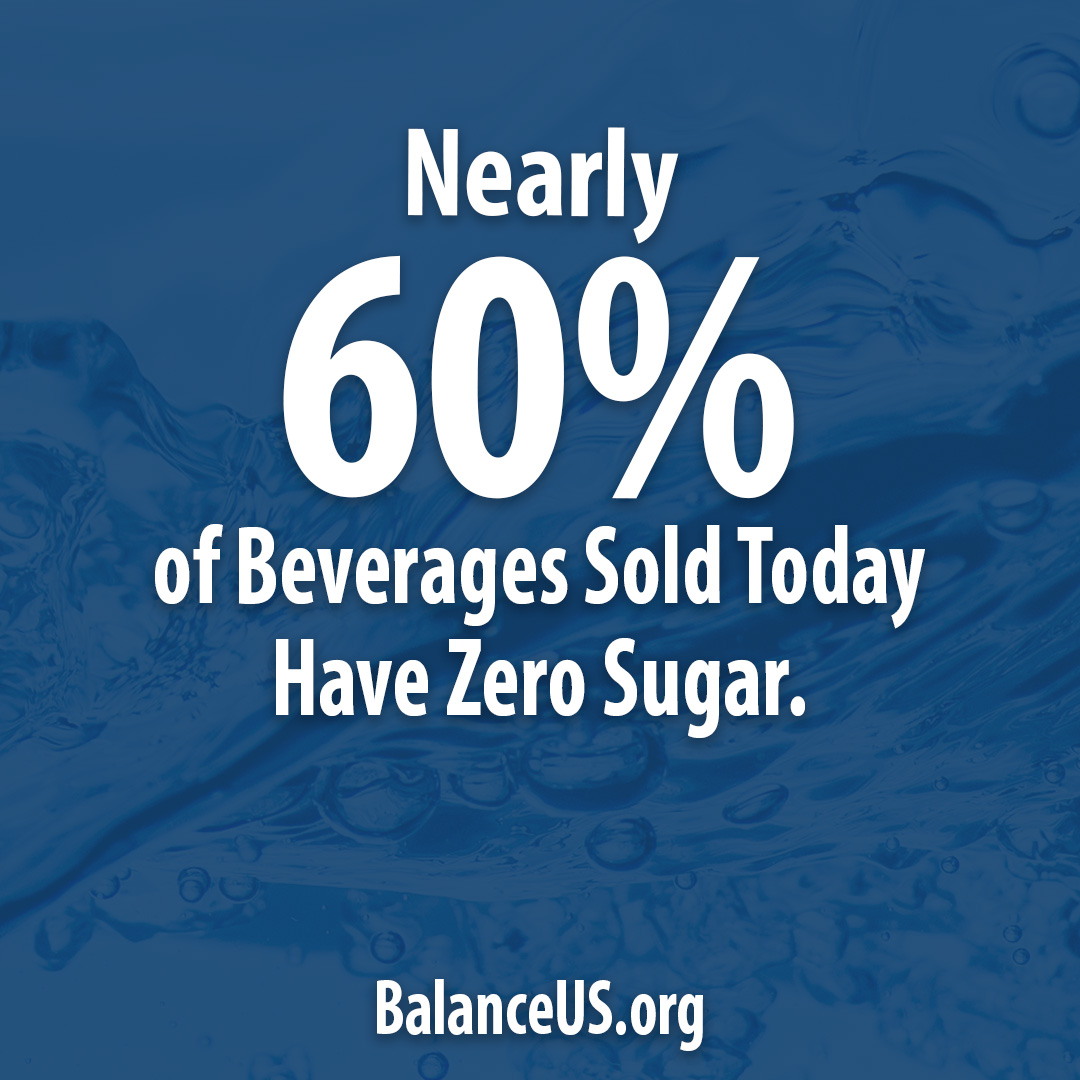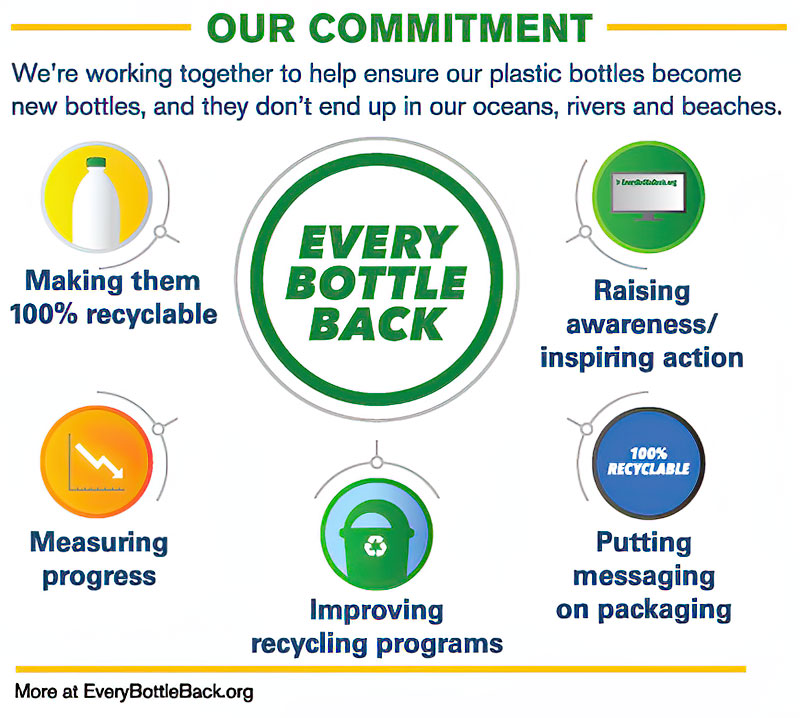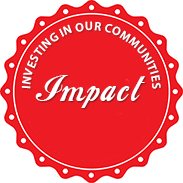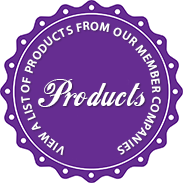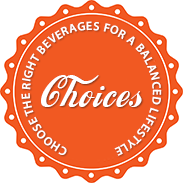Contact Us
FLORIDA BEVERAGE ASSOCIATION
135 Jenkins St. Suite 105B, #199
St. Augustine, FL 32080
407.385.2708
This email address is being protected from spambots. You need JavaScript enabled to view it.
-
Hits: 2896
ABA Microplastics Facts
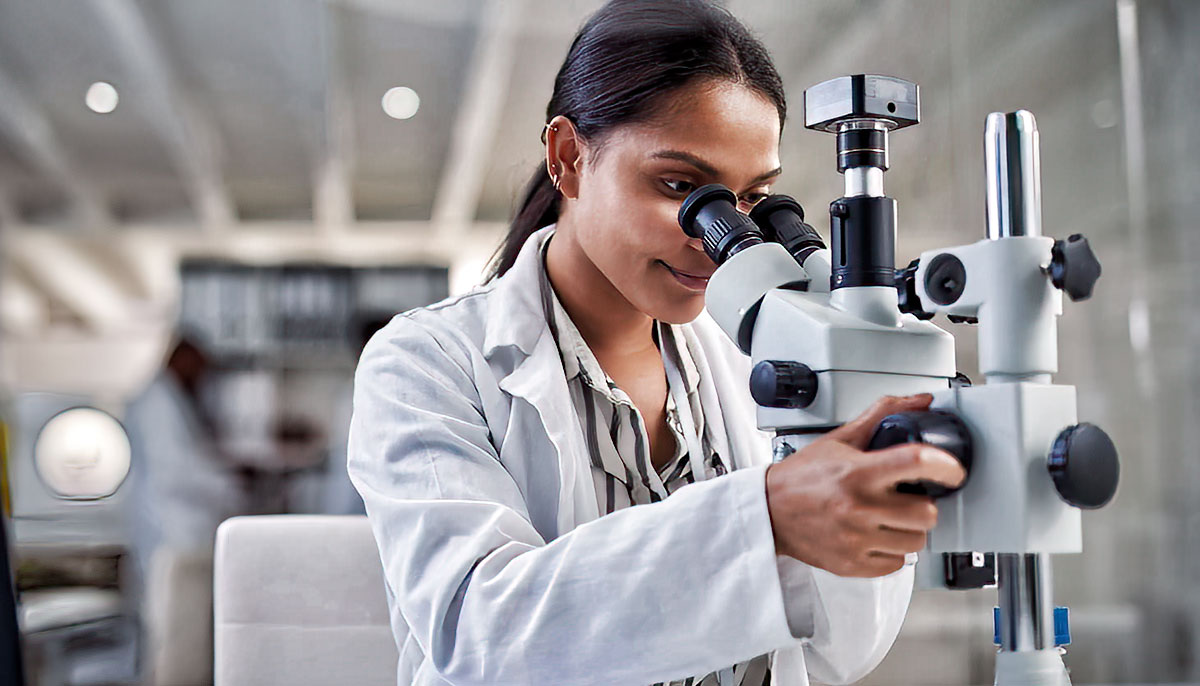 Our products are safe. All our products, including bottled water, meet the highest quality, safety, and labeling regulations set by the Food and Drug Administration.
Our products are safe. All our products, including bottled water, meet the highest quality, safety, and labeling regulations set by the Food and Drug Administration.
There is currently no scientific standard for how to measure nanoplastics in the environment nor a consensus on micro- or nanoplastics’ impact on human health, resulting in conflicting research and consumer confusion. The ABA supports scientific efforts to learn more.
Actions and Investments to Ensure Quality and Safety
- Beverage companies do not simply “bottle” tap water or spring water. We rely on the highest quality purification systems such as distillation, deionization, and reverse osmosis to remove impurities.
- Bottled water companies have made significant production and operational investments to bring bottled water to market in a safe, government-approved manner.
- We comply with stringent federal regulations for safety, quality, and labeling. The Food and Drug Administration standards for safety and quality of bottled water are as protective of public health as the Environmental Protection Agency’s standards for public drinking water systems.
We Support Scientific Efforts to Learn More about the Scope and Impact of Microplastics
- Scientists are working to determine how best to measure microplastics in the environment and their impact, if any, on human health.
- After a review of the available studies of microplastics in food, water, and beverages, the World Health Organization concluded that no data suggested overt health concerns associated with exposure to microplastic particles through drinking water and limited data providing little evidence that microplastics have adverse effects in humans.
Facts about the Columbia University Study on Nanoplastics
- Study authors, who acknowledged how little we know about nanoplastics, used new technology to detect nanoplastic particles in bottled water at 10-100 times greater than previously detected.
- They did not determine where these particles came from – a key question because these particles are found in all aspects of the environment – soil, air, and water.
- They did not compare the findings from plastic water bottles to water from the same source found in glass or aluminum.
- They did not answer if the particles were in the original source of the bottled water – such as municipal water or natural spring – before it was bottled.
-
Hits: 1221
Every Bottle Back Social Media Graphics
Thank you for supporting the Every Bottle Back initiative! Click on the images below to download and share your support for the Every Bottle Back initiative on social media.
Don’t forget to tag us and use the hashtags #EveryBottleBack, #FLaBev and #Sustainability
| Twitter and Threads | Facebook, LinkedIn & Instagram |
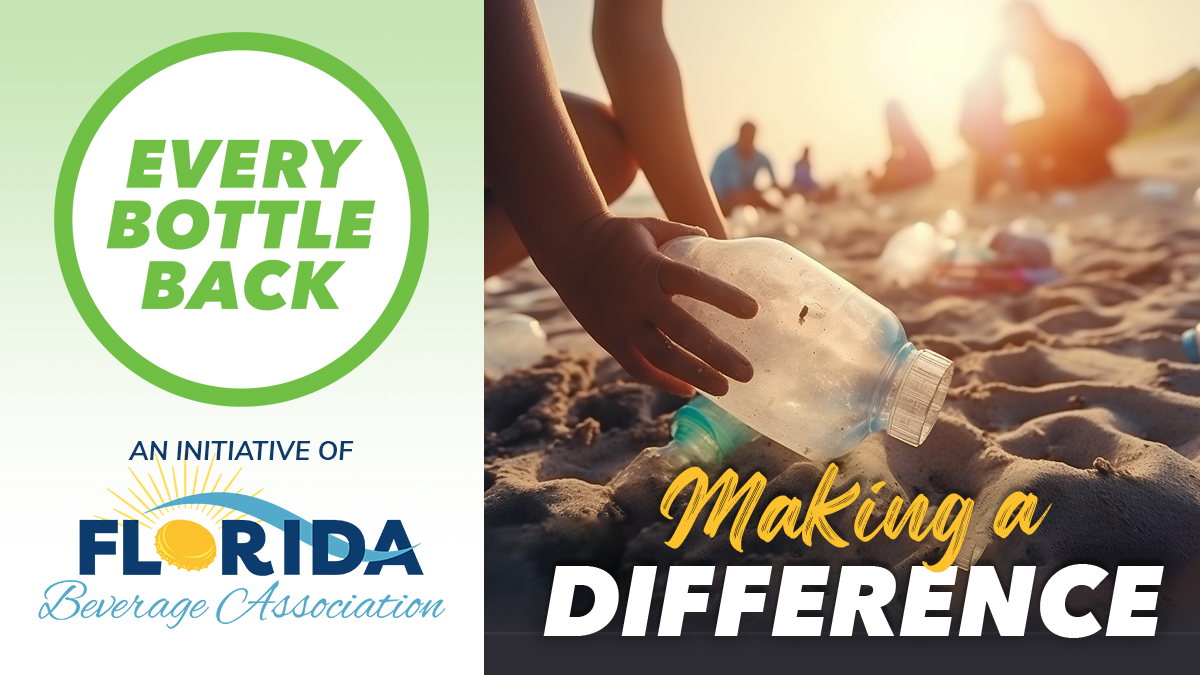 |
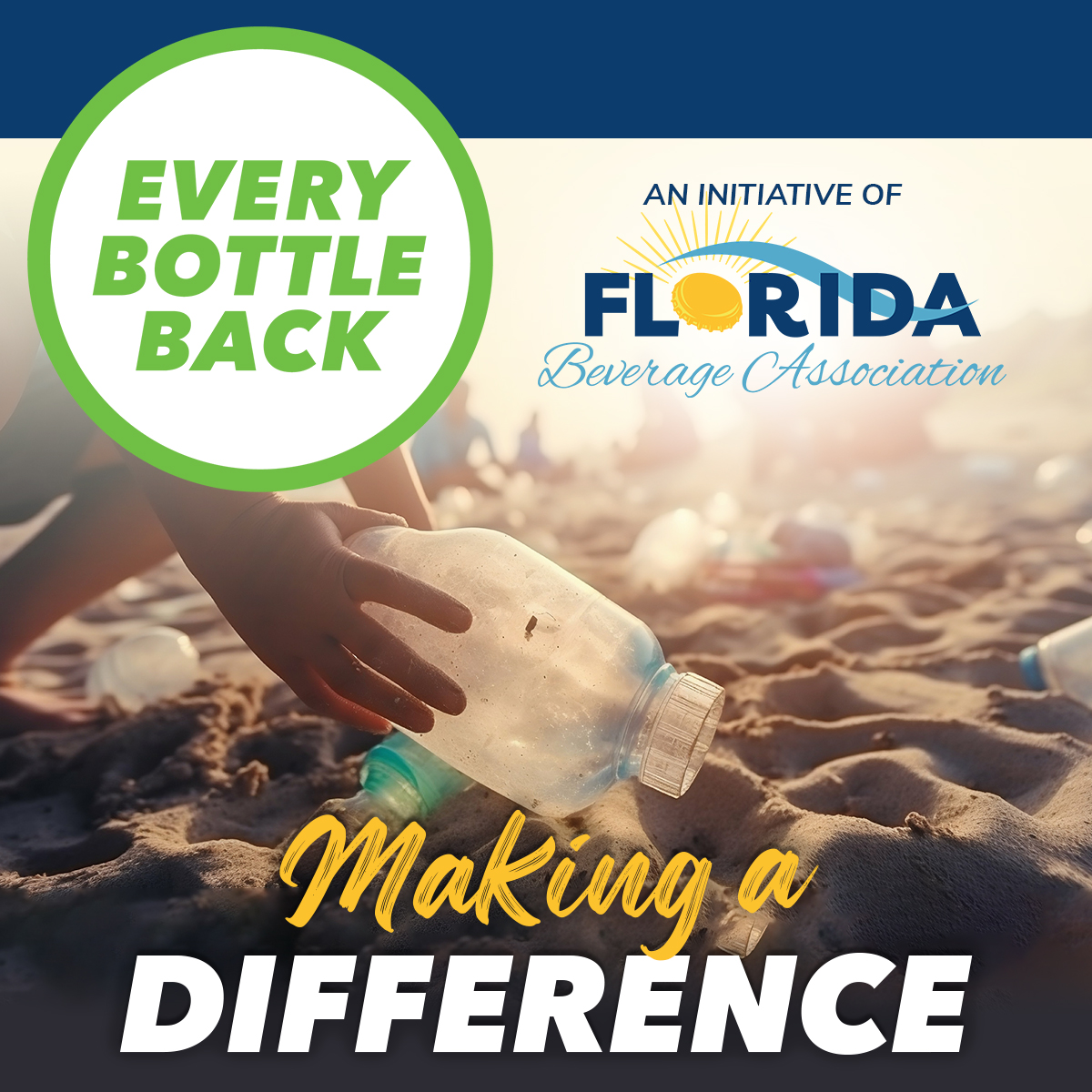 |
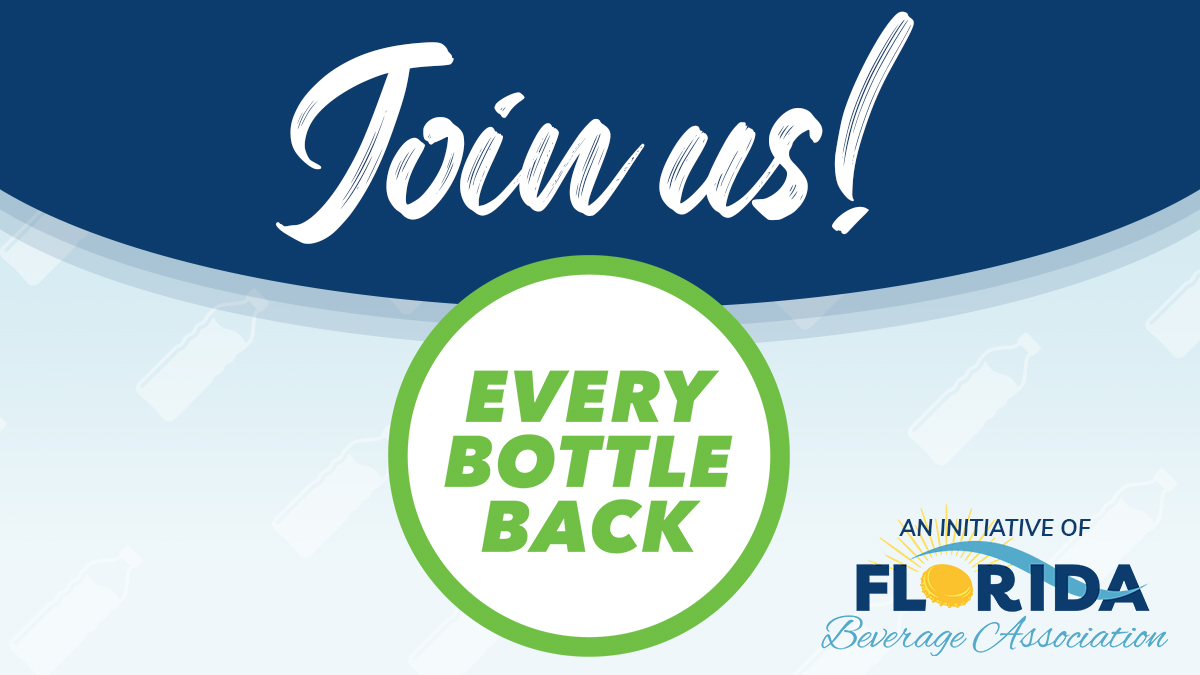 |
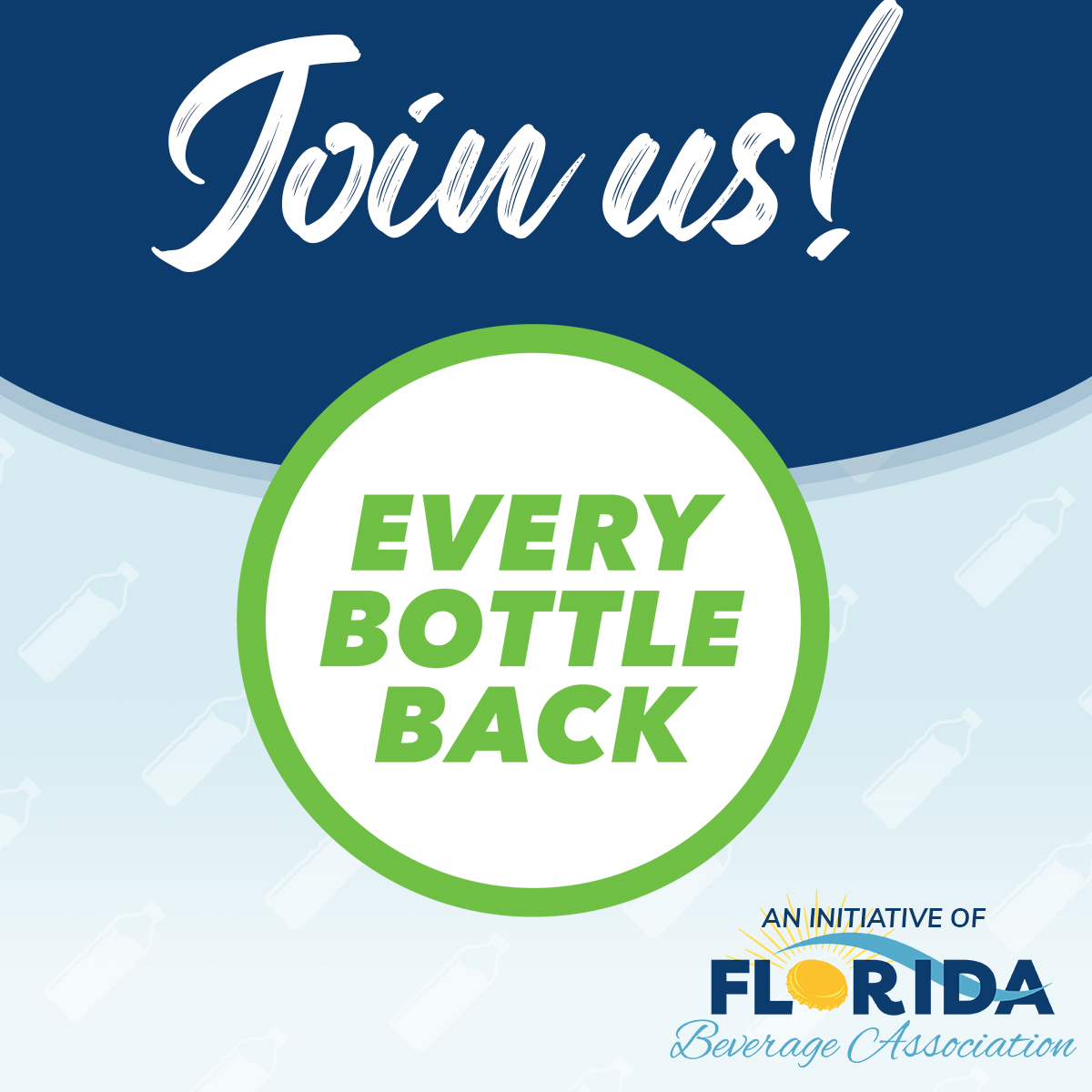 |
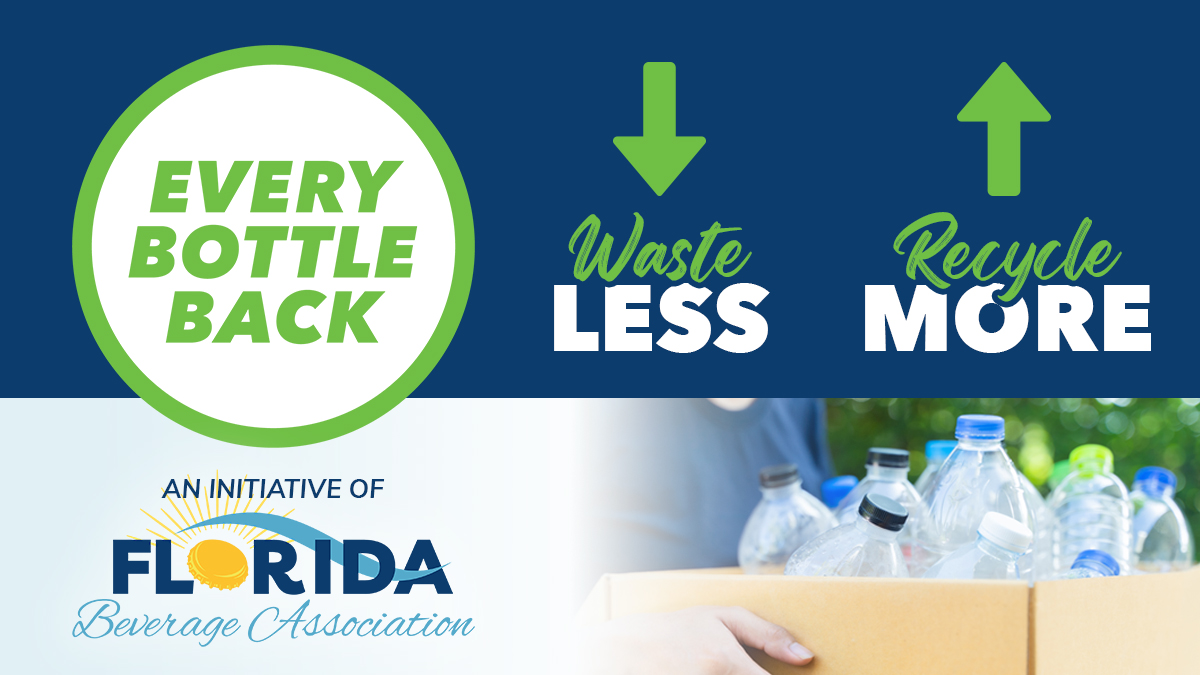 |
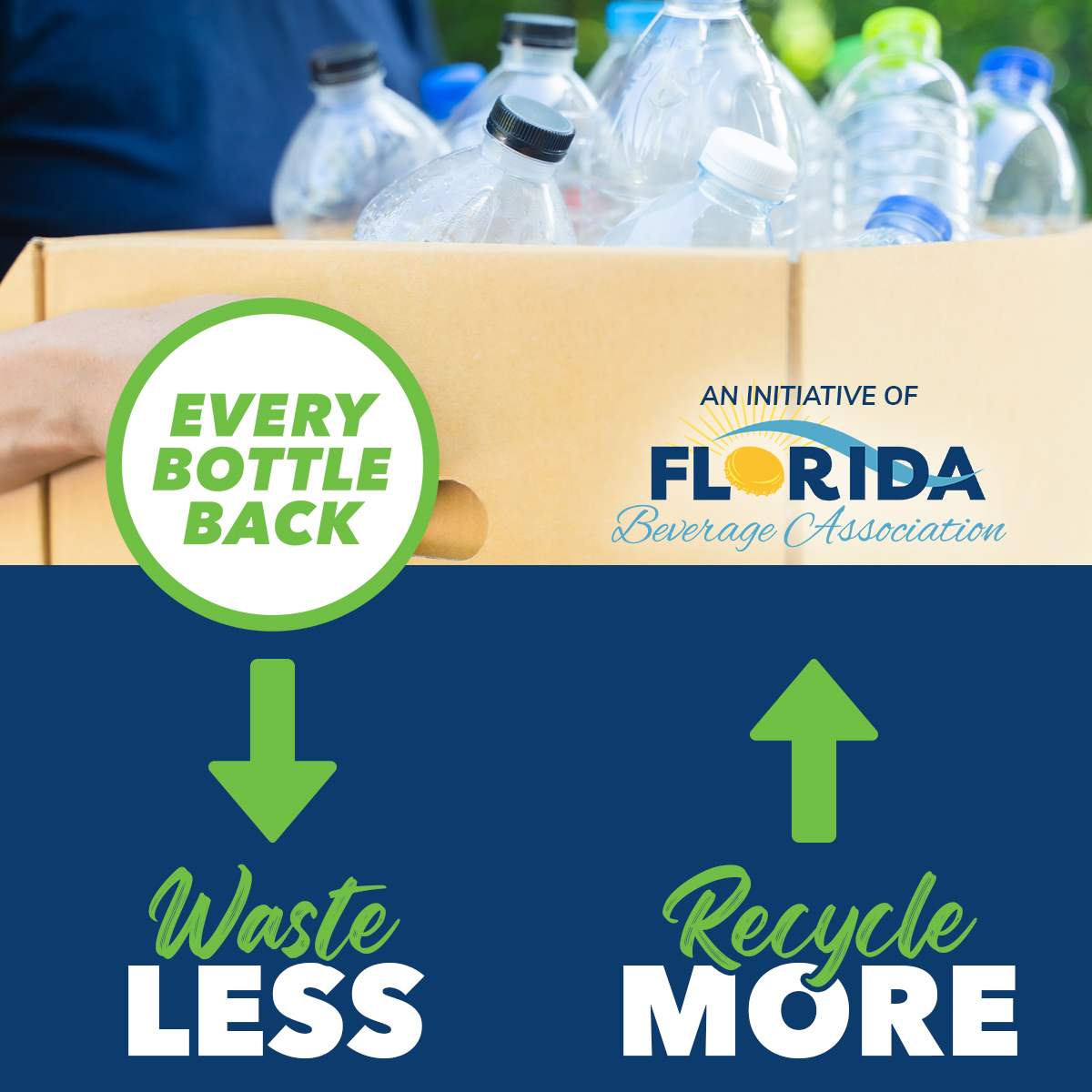 |
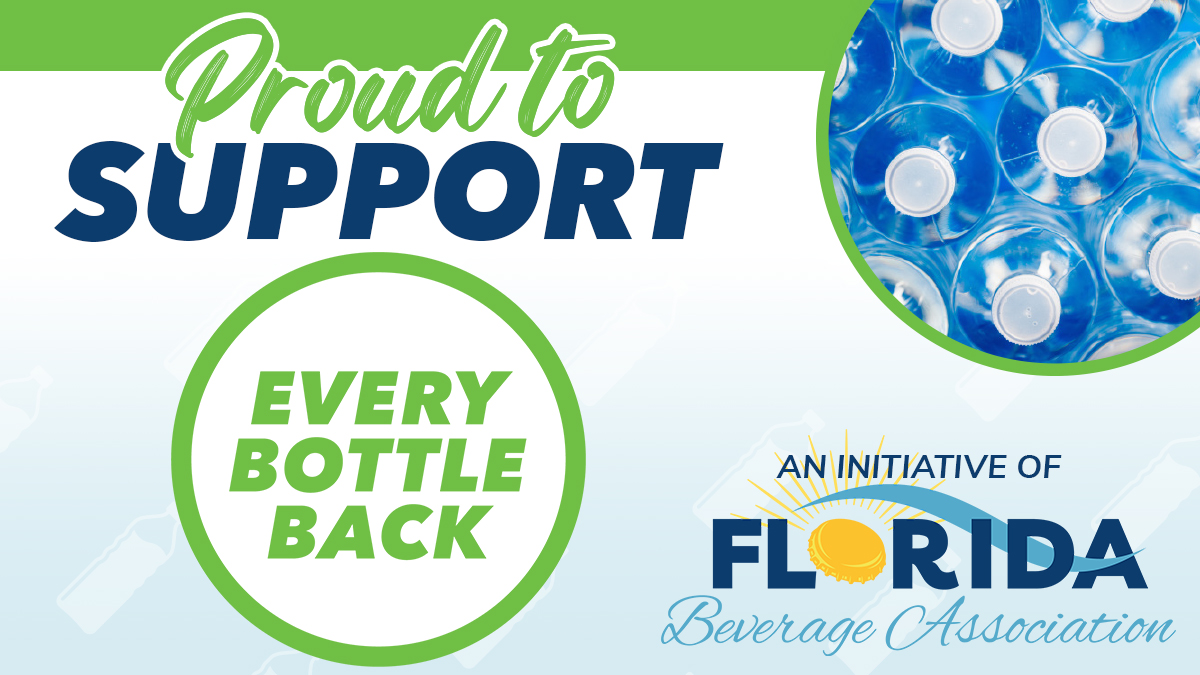 |
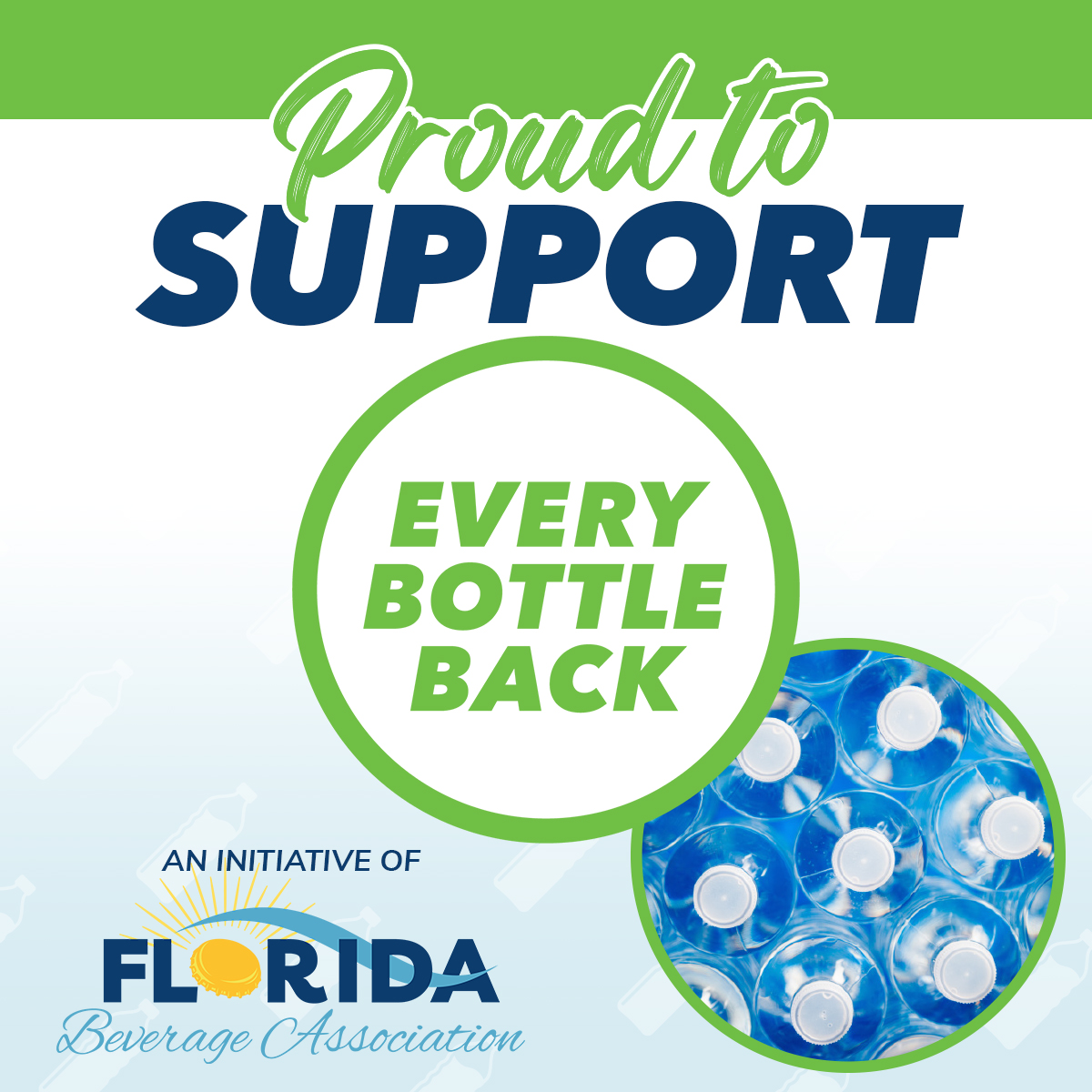 |
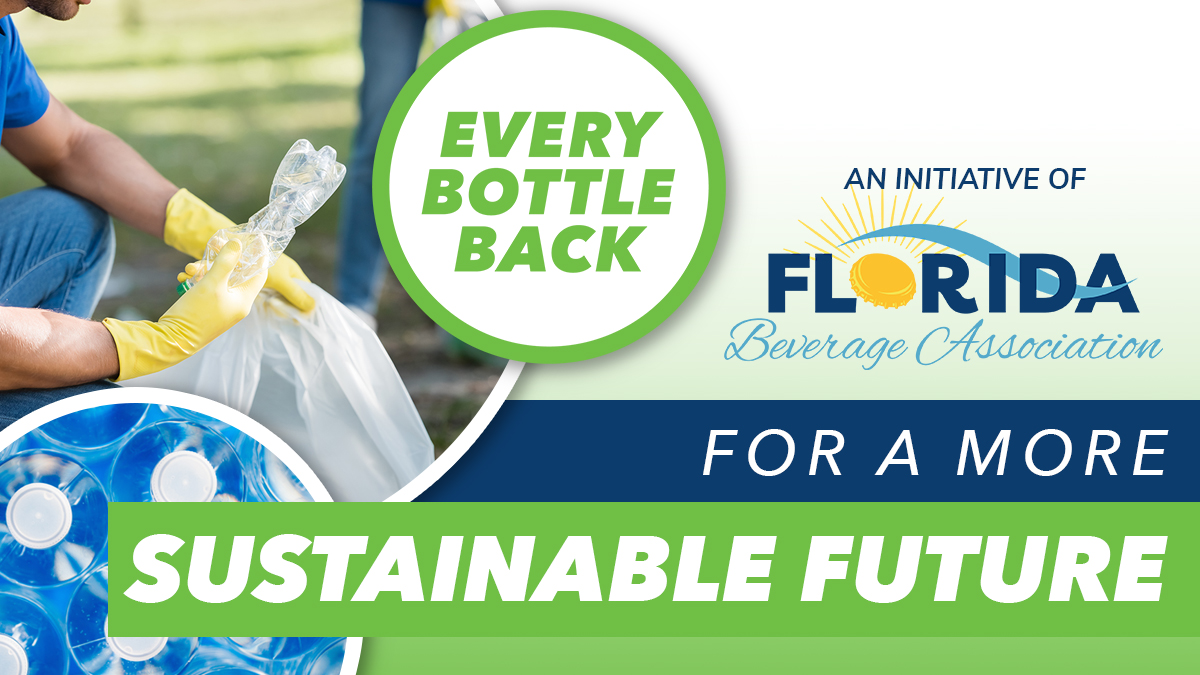 |
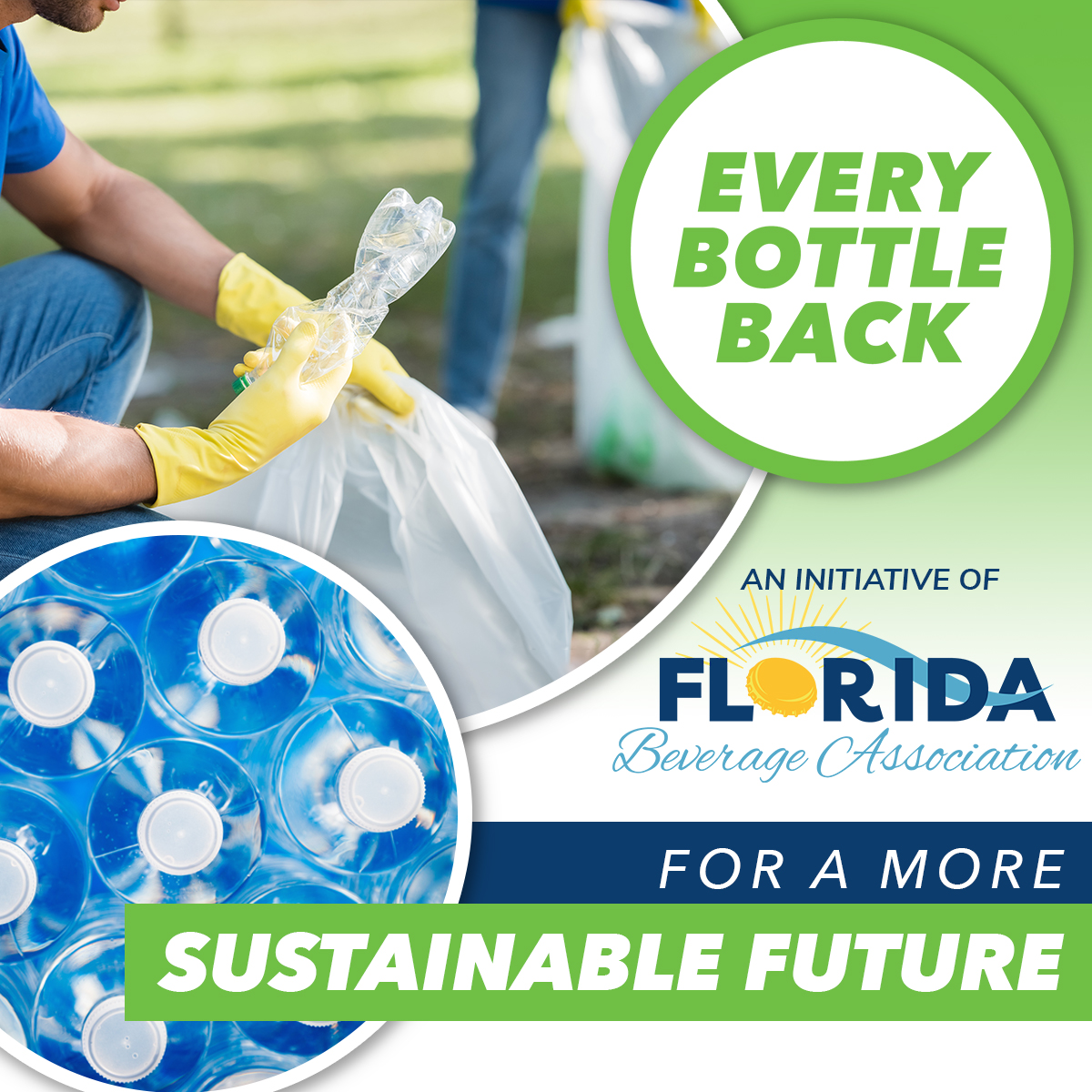 |
-
Hits: 336
Florida Beverage Association Invites Local Groups to Apply to its Community Grant Program
The Florida Beverage Association (FBA) is pleased to announce it is accepting applications from local groups for its Community Grant Program, which is focused on environmental sustainability, and health and wellness.
 This is the seventh year the state trade association representing non-alcoholic beverage producers, marketers, bottlers, and distributors has operated the grant program.
This is the seventh year the state trade association representing non-alcoholic beverage producers, marketers, bottlers, and distributors has operated the grant program.
“FBA and its members recognize the importance of building upon our commitment to the communities we serve by awarding grants to local programs that promote environmental sustainability and health and wellness,” said Elizabeth DeWitt, president and CEO of the Florida Beverage Association. “We believe partnerships are essential to educating consumers about choices they can make to impact the environment and their health.”
Previously, Santa Rosa County, The Science and Environment Council of Southwest Florida, Keep Tampa Bay Beautiful, the City of Orlando, Orange County Public Schools and the City of Miami have been awarded grants to strengthen programs focused on environmental sustainability. Additionally, The Florida Recreation and Park Association Foundation, The City of Tampa, the “I’m a STAR” Foundation, and Miami-Dade Parks, Recreation, and Open Spaces were recipients of past grants for their focus on promoting nutrition and active lifestyles.
Grant applications should be submitted online by Thursday, January 27, 2022. To be considered for a grant, all nominees must meet the requirements listed in the “Grant Program Criteria” found on the FBA website at www.flabev.org. Grants awarded through the FBA program are generally capped at $25,000; however, special programs and unique circumstances may justify a larger grant. In addition, some grant applications may be eligible for a matching grant from the American Beverage Foundation for a Healthy America (ABFHA).
All applications will be reviewed by the FBA Board Grant Subcommittee. FBA Community grant recipients will be selected and notified by the FBA Board of Directors by March 1, 2022. The FBA will submit their selections for award to the ABFHA matching grants program. Matching grants from the ABFHA will not be announced until May of 2022. General questions may be directed to FBA president and CEO Elizabeth DeWitt by phone at 407.385.2708 or by email at This email address is being protected from spambots. You need JavaScript enabled to view it..
-
Hits: 1635
Homepage
100% Recyclable Plastic Bottles
Our plastic bottles are made to be remade, not to end up in waterways and landfills. Learn how we’re helping reduce the use of new plastic.
-
Hits: 480
Recycling
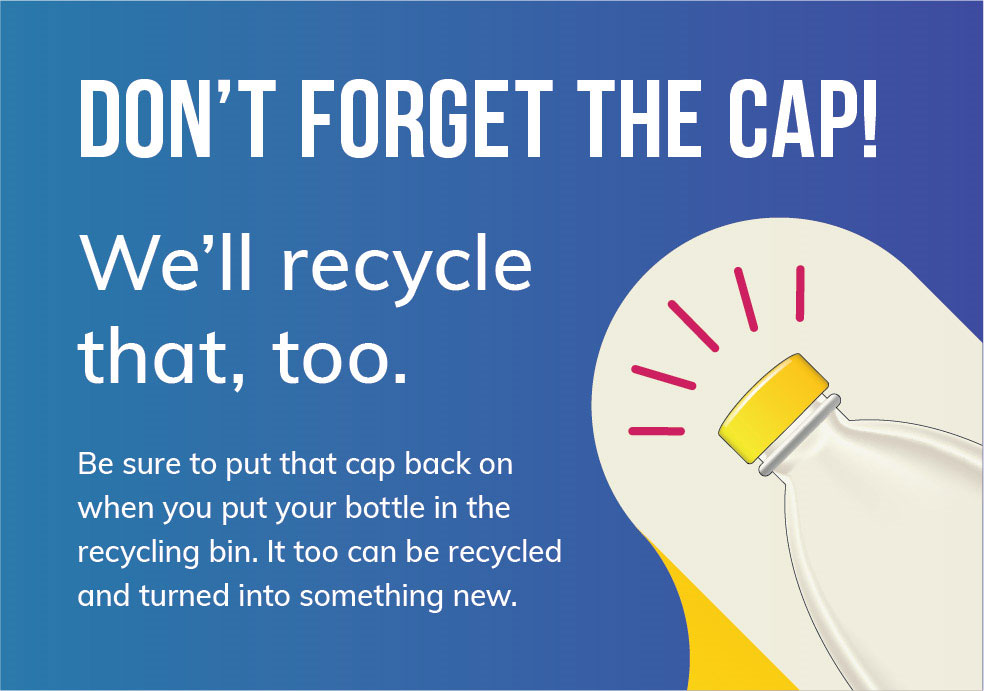 Recycling comes naturally to America’s beverage companies. We are making our plastic bottles 100% recyclable, including the caps. We’re carefully designing them this way for a simple reason: so our bottles can be used again and again. But there is always more to be done.
Recycling comes naturally to America’s beverage companies. We are making our plastic bottles 100% recyclable, including the caps. We’re carefully designing them this way for a simple reason: so our bottles can be used again and again. But there is always more to be done.
That’s why we’re supporting consumers and communities across the country in their efforts to improve recycling. Making it easier to recycle our plastic bottles means they’re more likely to be reused and less likely to end up in oceans, rivers, beaches and landfills.
More Efficient Recycling Means Less New Plastic
We are building our plastic bottles to be 100% recyclable, and that’s a critical first step. But it only helps the environment if we get them back. So we’re working hard to support strong recovery and recycling systems across the country.
 Our industry partners with The Closed Loop Fund, Keep America Beautiful and The Recycling Partnership to donate recycling bins, improve recycling systems and invest in strengthening the recycling infrastructure. And we’ve invested time and money to make it easier to recycle in public spaces like parks, airports, sports venues and festivals because recycling shouldn’t stop when you leave home.
Our industry partners with The Closed Loop Fund, Keep America Beautiful and The Recycling Partnership to donate recycling bins, improve recycling systems and invest in strengthening the recycling infrastructure. And we’ve invested time and money to make it easier to recycle in public spaces like parks, airports, sports venues and festivals because recycling shouldn’t stop when you leave home.
Saving Energy
Recycling ten plastic bottles saves enough energy to run a laptop for 25 hours. Learn more about how our industry is working to conserve energy and reduce greenhouse gas emissions. Click here to learn more.
Recycling in Florida
The Florida Beverage Association is proud to support environmental sustainability in Florida. FBA is currently a board member of both Keep Florida Beautiful and the Florida Recycling Partnership.
FBA President Liz Castro DeWitt serves as the Chair of Keep Florida Beautiful, one of Florida’s largest volunteer-based community action and education organizations, bringing together more than 40 county and city affiliates to inspire, educate and empower people in Florida to take action every day to improve and beautify their community environments.
DeWitt also serves as the Chair-Elect of the Florida Recycling Partnership, which is dedicated to improving Florida’s recycling rates. The Partnership’s mission is to educate policymakers and the general public on the benefits of recycling through the development of sustainable business practices promoting recycling, reducing waste and increasing the reuse of materials.
Our Progress
 |
We are producing 100% recyclable aluminum, plastic and glass beverage containers. Even our plastic caps can be recycled. |  |
The Coca-Cola Company, Keurig Dr Pepper and PepsiCo have each given $5 million to The Closed Loop Fund to help improve recycling in the US. |
Resources
-
Hits: 11433
Environmental Sustainability
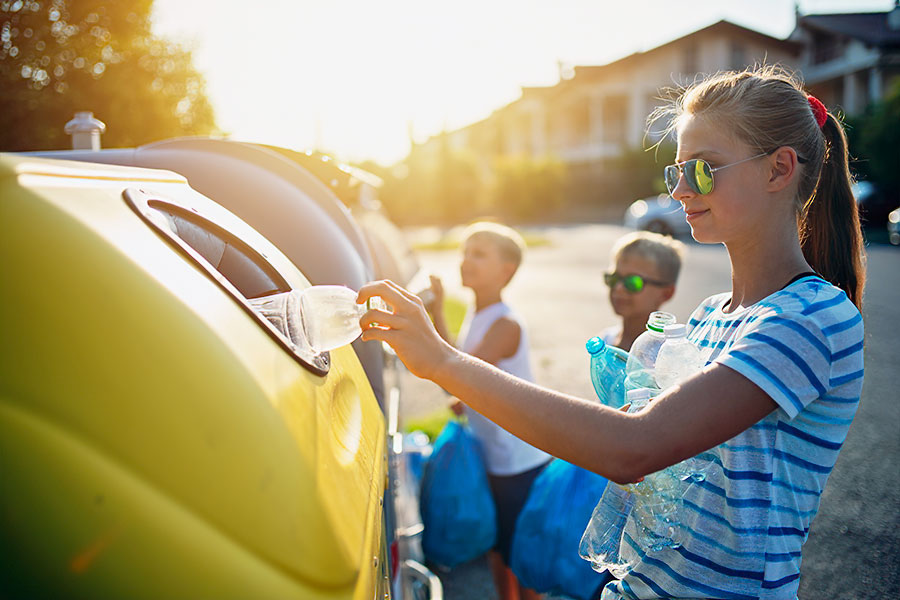 Working Together to Conserve Resources
Working Together to Conserve Resources
Florida's beverage companies are working together to find new and better ways to conserve our natural resources. It requires innovation and investment, but it’s the right thing to do for our planet and for our consumers.
Our Commitment To Get Every Bottle Back
America’s beverage companies are working together on a new initiative to get Every Bottle Back. See How
100% RECYCLABLE BOTTLESOur bottles can easily be remade into new plastic bottles and lots of other everyday products. See how |
INVEST IN RECYCLINGWe're improving recovery and recycling programs across the country. See how |
CONSERVING WATERAmerica's beverage companies have decreased water use 14 percent over five years. See how |
SAVING ENERGYWe're making operations more efficient and reducing greenhouse gas emissions. See how |
We Are Making 100 Percent Recyclable Bottles and We Want Them Back
Watch below to learn how our carefully designed plastic bottles are being reused in many ways to help limit the use of new plastic.
Every Bottle Back from American Beverage Association on Vimeo.
-
Hits: 12722
Plastic
 We are designing our plastic bottles to be fully recyclable because if we get them back to make new bottles we are helping keep them out of the environment.
We are designing our plastic bottles to be fully recyclable because if we get them back to make new bottles we are helping keep them out of the environment.
Our Plastic Bottles Are Made To Be Remade — And We Want Them Back
Everyone knows that plastic beverage bottles are convenient and shatterproof. But we also know that we need to reduce the use of new plastic to preserve our environment. So America’s beverage companies are working together to balance consumer convenience with environmental responsibility.
We are carefully designing our plastic bottles to be 100 percent recyclable – even the caps. We strive to make our bottles fully recyclable because our goal is for every bottle to become a new bottle, so we’re using less new plastic.
And many other companies want to reuse the plastic from our bottles in the products they make like shirts, coats, park benches and playground equipment. That means our plastic bottles are being reused in many ways to help limit the use of new plastic.
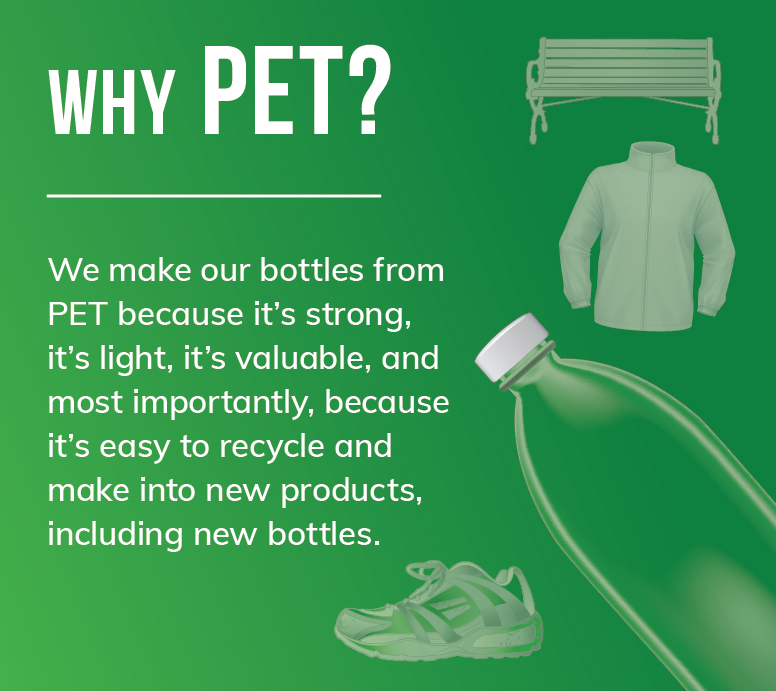 Watch the Video Below to Learn How We're Getting Every Bottle Back
Watch the Video Below to Learn How We're Getting Every Bottle Back
Why PET? WE make our bottles from PET because it's strong, it's light, and most importantly, because it's easy to recycle and make into new products, including new bottles.
All Plastic Isn't the Same
What makes our bottles unique is what they’re made from. It’s a light and strong plastic material called PET that’s in high demand because it’s 100 percent recyclable and can easily be remade into new plastic bottles and many other everyday products.
When we get our plastic bottles they can be used by our beverage companies to make new bottles or by other consumer goods companies to make products like coats, shoes, furniture, park benches and even playground equipment.
Our bottles are unique because they were designed to be used and remade into something new, and not end up in oceans, rivers, beaches and landfills.
Our Progress
| America's beverage companies have saved HUNDREDS OF MILLIONS of pounds of raw materials through lightweighting and packaging reduction. | Keurig Dr Pepper will have 100 percent recyclable or compostable packaging and use 30 percent post-consumer recycled content across its portfolio by 2025. | ||
| PepsiCo will make 100 percent of its packaging recyclable, compostable or biodegradable by 2025. | The PlantBottle™ designed by The Coca-Cola Company has prevented 150,000 tons of CO2 emissions in North America alone. |
Every Bottle Back from American Beverage Association on Vimeo.
-
Hits: 8620
Energy
 Climate change affects us all. That’s why America’s beverage companies have worked to improve energy efficiency and reduce greenhouse gas emissions. From our factories to our fleets to our vending machines, we’ve made significant changes. And we’re committed to doing even more.
Climate change affects us all. That’s why America’s beverage companies have worked to improve energy efficiency and reduce greenhouse gas emissions. From our factories to our fleets to our vending machines, we’ve made significant changes. And we’re committed to doing even more.
On a Mission to Reduce Emissions
The Coca-Cola Company, Keurig Dr Pepper and Pepsi have each set goals to lower emissions and keep improving efficiency. Our companies have pledged to work with government leaders, environmental organizations and other businesses to ensure these emission reductions will provide environmental benefits throughout the United States.
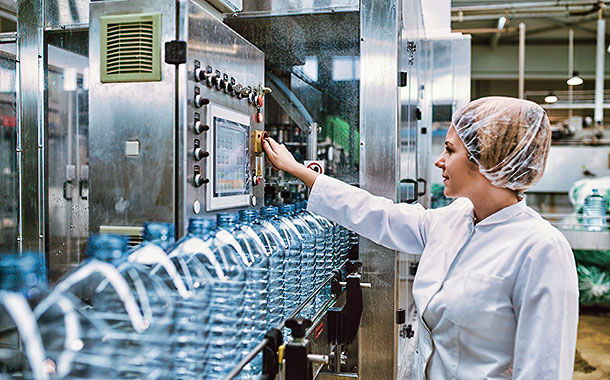 We’ve also rapidly expanded our use of hybrid vehicles. Our fleets now boast the largest number of heavy-duty hybrid-electric commercial trucks on the road. That’s helped us reduce CO2 emissions by up to 30 percent per vehicle.
We’ve also rapidly expanded our use of hybrid vehicles. Our fleets now boast the largest number of heavy-duty hybrid-electric commercial trucks on the road. That’s helped us reduce CO2 emissions by up to 30 percent per vehicle.
Cutting Back on Water Use
We’re not just getting more efficient at delivering our products, but at making them, too. Learn how we’ve reduced water use by 14 percent per unit over five years. READ MORE
Our Progress
 |
100 percent of new, company-controlled beverage coolers will be HFC-free. |  |
Each of the industry’s all-electric vehicles saves 10 TONS of greenhouse gas emissions annually. |
 |
In 2016, The Coca-Cola Company operated 81 renewable energy projects in 25 countries and is working to launch 50 more projects. |  |
Since 2009, Keurig Dr Pepper removed 250 million pounds of CO2 from the atmosphere by replacing older vending machines with energy-efficient ones. |
 |
PepsiCo has eliminated the need for 1 million gallons of diesel fuel since launching its electric vehicle initiative in 2010. |
Resources
-
Hits: 7080
Photos
-
Hits: 2420
Designing 100% Recyclable Plastic Bottles
Our plastic bottles are made to be remade, not to end up in waterways and landfills. Learn how we’re helping reduce the use of new plastic.

